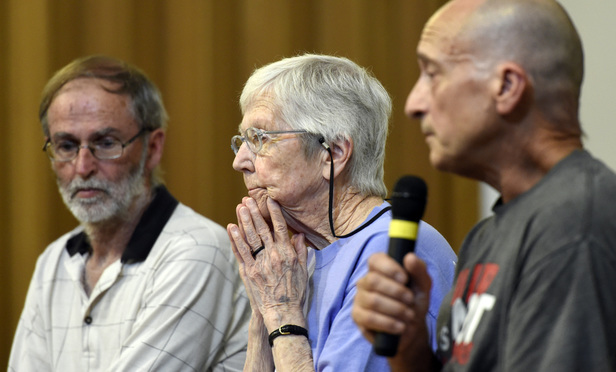It sounds like the start of a joke: An octogenarian Catholic nun and two Army veterans break into a government nuclear facility. But it wasn’t a laughing matter for Sister Megan Rice and peace activists Michael Walli and Greg Boertje-Obed, who were convicted in 2013 for sabotage after entering a Tennessee nuclear complex that once housed the Manhattan Project to protest.
To a pro bono coordinator at Orrick, Herrington & Sutcliffe, the case sounded too good to pass up. In the spring of 2014, a group of senior associates at the firm agreed to spearhead an appeal alongside Loyola University law professor William Quigley, who had defended the protesters at trial. Last year, the lawyers convinced a federal appeals court to reverse the convictions of all three defendants under the Sabotage Act. In May 2015, a panel of the U.S. Court of Appeals for the Sixth Circuit ruled 2-1 that Rice and the others shouldn’t have been convicted, since their actions lacked the intent required for a Sabotage Act violation. Prosecutors hadn’t shown that the defendants meant to interfere with the country’s national defense, the panel concluded. The ruling paved the way for the nun’s and the Army veterans’ eventual release from prison on time served, after they each spent about two years locked up.






